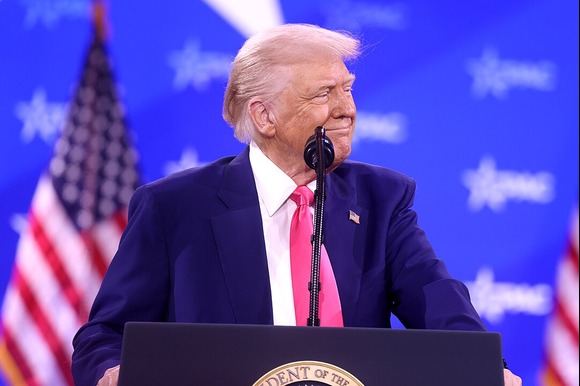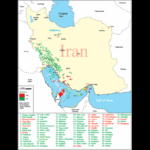United States President Donald Trump has ruled out supporting a ceasefire between Israel and Iran, saying he is seeking a “real end” to hostilities as the two countries continue trading air attacks for a fifth consecutive day.
Speaking to reporters aboard Air Force One on Tuesday, following his early departure from the Group of Seven (G7) summit in Canada, Trump clarified his stance. “I’m not looking for a ceasefire. We’re looking at better than a ceasefire,” he said, doubling down on his long-held position that “Iran cannot have a nuclear weapon.”
His comments came after speculation that he had left the summit to initiate a ceasefire process. Trump dismissed those suggestions in a post on his social media platform, Truth Social. “I have not reached out to Iran for ‘Peace Talks’ in any way, shape, or form,” he wrote. “If they want to talk, they know how to reach me. They should have taken the deal that was on the table – Would have saved a lot of lives!!!”
Tensions have escalated rapidly since Israel launched a surprise bombing campaign against Iran on Friday. In response, Iran cancelled its participation in what would have been the sixth round of US-Iran nuclear negotiations, scheduled for Sunday in Oman. The talks were part of an effort to revive diplomacy after years of deadlock.
Iranian Foreign Ministry spokesperson Esmaeil Baghaei blamed Washington’s approach for the breakdown in dialogue. “The other side [the US] acted in a way that makes dialogue meaningless,” Baghaei said Saturday. “You cannot claim to negotiate and at the same time divide work by allowing the Zionist regime [Israel] to target Iran’s territory.”
Despite having previously expressed disapproval of an Israeli strike on Iran, calling instead for a diplomatic approach, Trump has since shifted his tone dramatically. He has praised Israel’s actions, describing the bombardment as “excellent” and even suggesting it could strengthen the U.S. position in any future negotiations.
Before the Israeli offensive began, Iran had rejected a U.S. proposal that demanded zero uranium enrichment, though Tehran had indicated it was preparing a counterproposal in hopes of advancing the stalled nuclear discussions.
Israel has maintained that its strikes are necessary to prevent Iran from moving closer to developing a nuclear weapon. Iran’s military response has included the launch of hundreds of missiles and drones into Israeli territory, resulting in the deaths of more than 20 people. Israeli attacks have, in turn, killed over 220 people in Iran, according to Iranian health officials.
When asked aboard Air Force One whether Israel would scale back its campaign, Trump hinted that further escalation was likely. “You’re going to find out over the next two days,” he said. “Nobody’s slowed up so far.”
He also mentioned that he may consider dispatching his Middle East envoy Steve Witkoff or Vice President JD Vance to engage Iranian officials, but emphasized that any such decision would depend on how events unfolded.
Adding to the tension, Trump caused alarm with a cryptic warning on social media just before his departure from the G7 summit, advising that “everyone should immediately evacuate” the Iranian capital, Tehran. “Iran should have signed the ‘deal’ I told them to sign,” Trump wrote. “What a shame, and waste of human life.”
Asked by reporters to explain the rationale behind his dramatic message, Trump said his intention was to ensure “people [are] safe.”
China has sharply criticized Trump’s comments, accusing him of further inflaming the already volatile situation. “Making threats and mounting pressure will not help to promote the de-escalation of the situation but will only intensify and widen the conflict,” said Chinese Foreign Ministry spokesman Guo Jiakun.
As both Israel and Iran show no signs of backing down, and with U.S. rhetoric growing increasingly hawkish, the risk of a broader regional war remains high—drawing in global powers and further threatening regional and energy stability.






